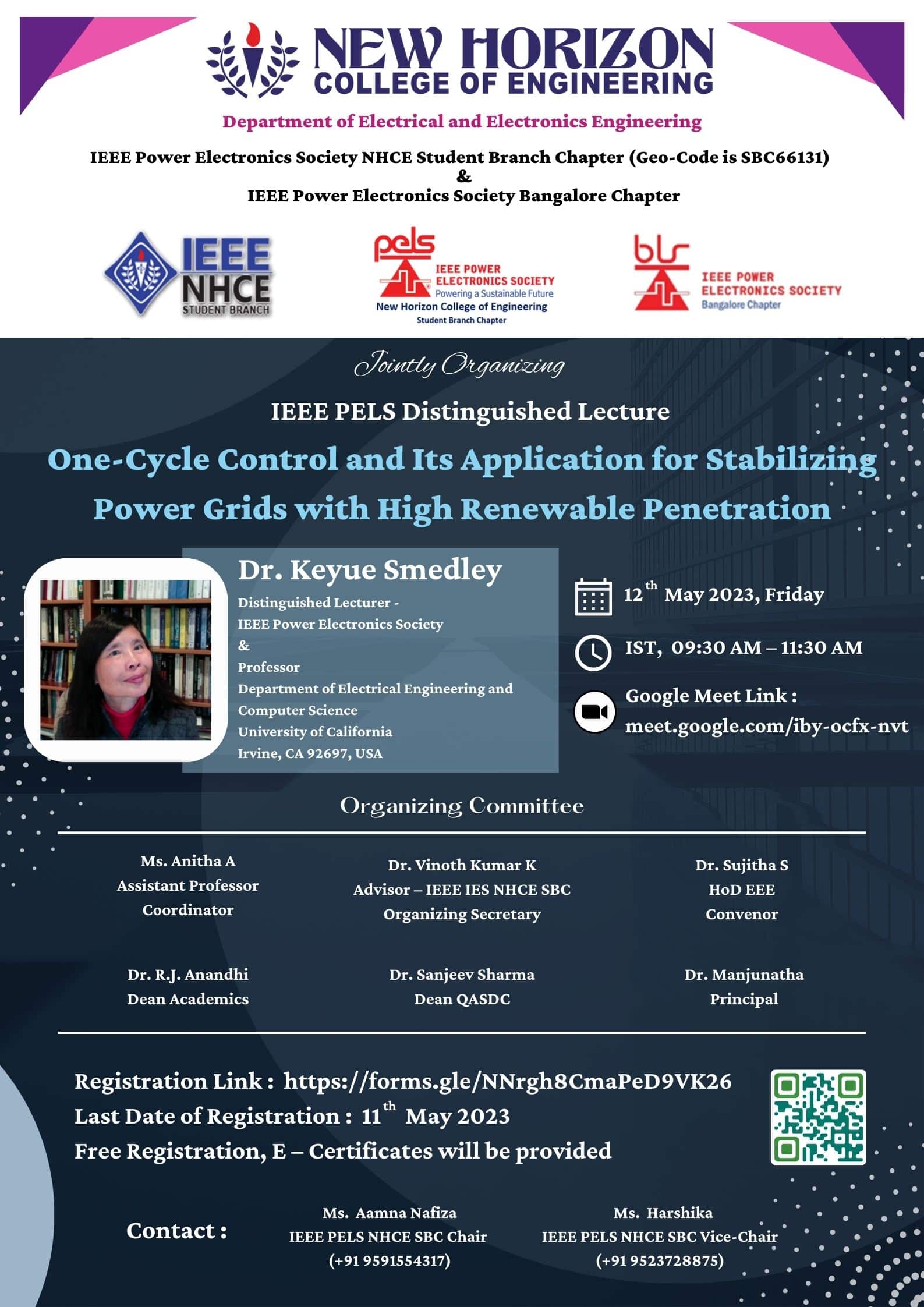EVENTS
Distinguished Lecture Program on “One-Cycle Control and Its Application for Stabilizing Power Grids with High Renewable Penetration

Start Time
9:30 am
May 12, 2023
Finish Time
11:30 am
May 12, 2023
IEEE Power Electronics Society NHCE Student Branch Chapter of Electrical & Electronics Engineering Department, NHCE in association with IEEE PELS Bangalore Chapter is planning to organize a Distinguished Lecture Program on “One-Cycle Control and Its Application for Stabilizing Power Grids with High Renewable Penetration” for the benefit of students, research scholars and faculties of NHCE and other External Institutions through Virtual mode. The objective of this programme One-Cycle Control and Its Application for Stabilizing Power Grids with High Renewable Penetration – One-Cycle Control (OCC) is a nonlinear control technique for switching converters. It achieves pulse-width modulation (PWM) by comparing the average value of a switched variable to a reference to ensure equality in each switching cycle. OCC enables precise control of a converter’s dynamics in one switching cycle, making it suitable for solving complex control equations. Precision, speed, universality, and simplicity are the most notable features of OCC. In fact, OCC is by far the fastest control reported for power converters.
One worth-noting example of OCC is its ability to realize four-quadrant universal control of three-phase inverters, which allows an inverter to perform power factor correction (PFC) rectification, inverting, dynamic VAR compensation (DVC), active power filtering (APF), or any combination of these functions. Using OCC, these complex control tasks can be achieved with a simple control circuit, offering ultrafast and powerful power conversion for modern grids, electric vehicles, more electric aircraft, and other areas of applications.
In this presentation, Dr. Smedley will explore the application of the OCC dynamic VAR compensator (DVC) to address the increasing instability of power grids in high renewable penetration scenarios. The present power grid is already under significant stress due to lagging infrastructure updates in response to the growing demand for electricity. This issue is compounded by the intermittent and rapid transients of renewable energy sources. For instance, in circuits with a decent amount of solar penetration (even 10-15%), voltage changes can occur rapidly due to passing clouds, causing systems to switch on and off frequently. The traditional grid equipment for voltage regulation will wear out much more quickly, making the adoption of renewables an expensive prospect. VAR compensation is a well-established Flexible AC Transmission System (FACTS) method for stabilizing voltage.
However, to handle the rapid transients of renewable energy, much faster speed is required. The OCC method has demonstrated exceptional VAR speed for mitigating the impact of intermittency in renewable energy output and other disturbances. OCC-DVC provides a solution to enhance the grid’s flexibility and resilience.

